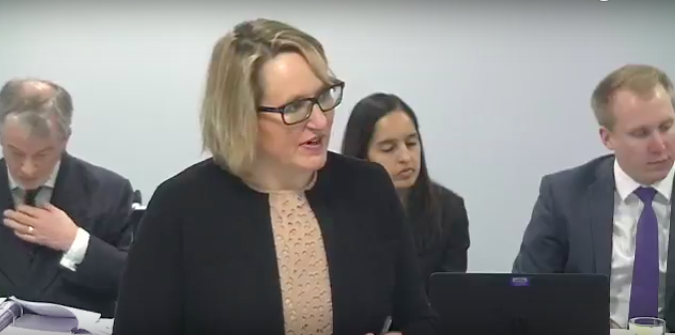Did the Church of England's divisions over homosexuality contribute to child sex abuse cover-up?
The Church of England's historic opposition to homosexuality and women bishops may have fuelled sex abuse, an inquiry heard.
Factionalism between competing groups within the Church also may have allowed abuse to go unreported and ignored.

The independent inquiry into child sexual abuse is examining the diocese of Chichester as a case study for how the broader Church of England responds to abuse.
Professor Alexis Jay, who chairs the inquiry, heard that the diocese of Chichester was seen as both Anglo-Catholic and conservative. Both groups strongly oppose the ordination of women bishops who, the inquiry was told, had brought improvements in the Church's attitude to safeguarding.
Fiona Scolding QC, lead counsel to the inquiry, said in her opening statement on Monday: 'Both Anglo Catholicism and evangelicals may have considered themselves to have been under threat in the church at the time in question. In those circumstances, some witnesses tell us that feelings of defensiveness may have come to the fore.'
She added: 'Some people who have given evidence to this inquiry indicate that, in those circumstances, people may have put loyalty to their faction above dealing with safeguarding and that in some cases ignorance or naivety about homosexual practices may have wrongly equated homosexuality with child abuse and so nothing happened.'
The former archbishop of Canterbury, Rowan Williams, admitted the Anglo Catholic wing of the Church had 'strong undercurrents of homosexuality' in his evidence to the inquiry, whereas conservative evangelicals tended to be strongly opposed to homosexuality.
Fiona Scolding QC said: 'Issues of gender and sexual orientation therefore may have had more prominence in Chichester than may have been the case elsewhere, but they may simply reflect in microcosm the difficulties and divisions of the Church as a whole.'
Of senior clergy in Chichester she added: 'There are also allegations made that some individuals may have been uncomfortable being challenged by women in positions of authority.'
Mr Scorer, a lawyer to a number of the victims represented in the hearings, went on to say that women clergy had brought an improvement in safeguarding and traditionalist approaches to female ordination blocked progress.
'It [the Church] has abandoned the absurd and offensive notion that women must be excluded from the Church's power structures, said he said. 'Women bishops in the Church of England are clearly amongst the most progressive in their attitudes to safeguarding and in their concern for survivors, so that is clearly a favourable point of comparison with the Catholic Church.'
The hearings continue.











